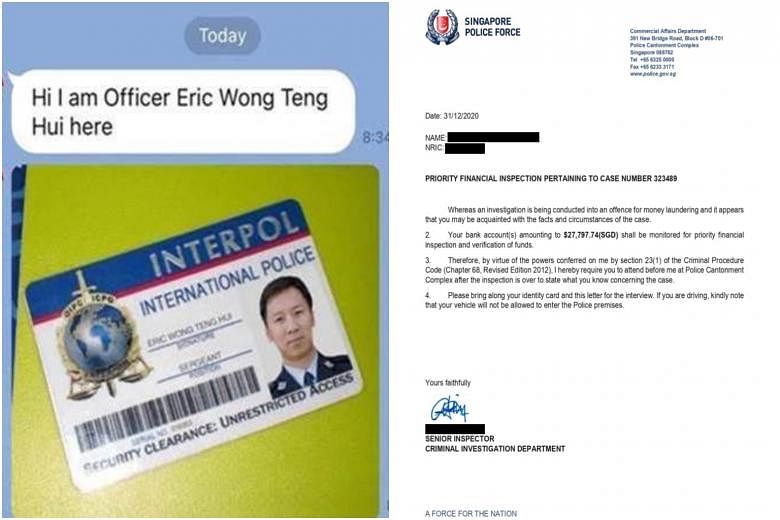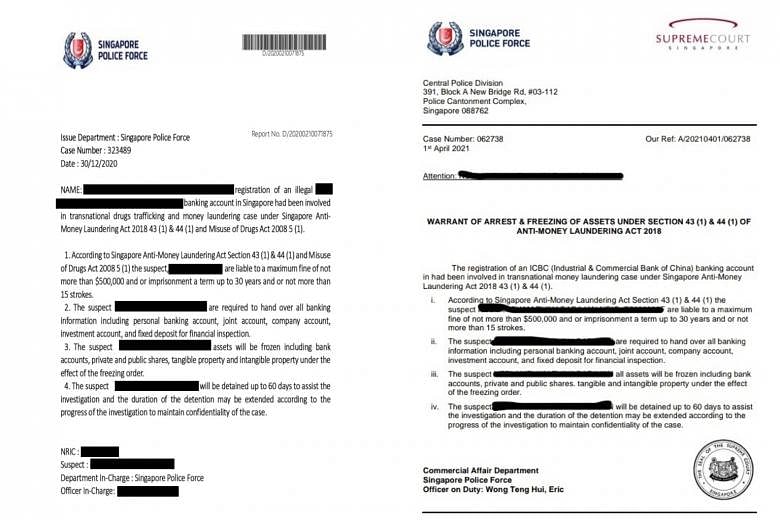SINGAPORE - More than $3.9 million was lost between January and April to a new type of scam, where con men pose as Singapore High Court or Interpol officials. Targeting English-speaking individuals, scammers led victims to hand over money or their bank accounts as part of investigations for fabricated crimes.
The police said on Wednesday (April 21) that they had received over 40 reports of such scams.
Victims were told that they being probed for money-laundering offences and referred to a fake Interpol officer, "Eric Wong Teng Hui". They were then told to download messenger app Line for further communication.
Through Line or WhatsApp, victims were shown a fake Interpol International police pass and a letter from the Singapore Police Force.
The letter, which told victims that their "assets were frozen" and bank accounts monitored for "priority financial inspection", was signed off by a fake inspector "Yong Tian Ming".
Victims were then instructed to provide their identification documents for verification and to surrender their monies for investigation by transferring cash to various bank accounts, which were controlled by scammers.
They were promised that the money transferred would be returned to them when investigations were completed.
Some victims were even asked to hand over their banking credentials and Singpass log-in details.
In its statement, the police said no local government agency will demand payment through an undocumented medium like a telephone call or other social messaging platforms.
Neither would officials demand that someone surrenders cash to unnamed people, or ask for personal banking information, police added.
They advised the public to ignore unsolicited calls telling them to surrender money and not to divulge personal information or bank details.
They also urged foreign residents who receive calls from people claiming to be officials from their home country to call the embassy or high commission to verify the claims of the caller.



